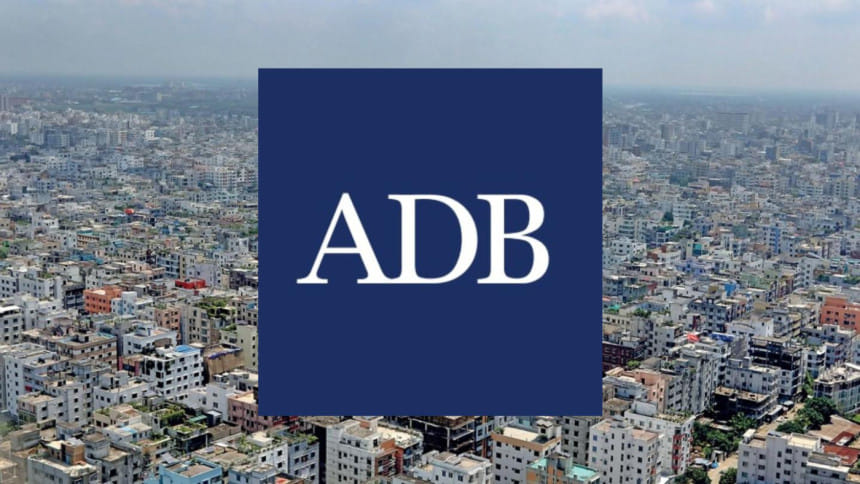ADB-funded projects face fresh hurdles

Many ongoing development projects, funded by the Asian Development Bank, is facing additional implementation challenges due to the current political climate and changes in the government, a document says.
The ADB has also initiated a "rapid market assessment" to "better understand the impact of the prevailing socio-economic conditions", it said.
Against this backdrop, a three-day Tripartite Portfolio Review Meeting (TPRM) for the ADB-funded projects starts in Dhaka today.
The critical implementation issues, including additional challenges that projects have faced during the recent unrest and changes of the government, are on the agenda of the meeting.
The meeting was supposed to be held in July 2024 but got delayed due to the uprising, which led to the changes in the government.
Representatives of implementing agencies of all the projects will join the meeting.
The third and final day of the meeting will be co-chaired by the secretary of the Economic Relations Division and the country director of the ADB's Bangladesh Resident Mission.
Currently, 53 investment projects in six sectors are being implemented with ADB's fund of $12.262 billion.
Of the projects, five are in the agriculture, food, nature, and rural development sector; 10 in the human and social development sector; nine in the energy sector; 12 in the transport sector; 11 in the water and urban development sector; and six in the finance, public sector management, and governance sector.
Implementation of all major projects, particularly the infrastructure ones, was halted or almost stopped amid the quota reforms protests, which eventually turned into a student-led mass uprising that toppled the Hasina-led government on August 5.
"Almost all work remained halted for two months [July and August]. Work resumed in September, but it is yet to get momentum," a director of a major ADB-funded project told The Daily Star yesterday.
"Situation of other projects were almost same, and I think ADB wanted to mention this problem as additional challenges," the director said seeking anonymity.
WHAT ADB SAYS
According to a background paper made ahead of the tripartite portfolio review meeting, awarding of contract achieved is $392.5 million (59.6 percent) against the annual target of $663.8 million this year.
The disbursement is $890.2 million (61.6 percent) against the annual target of $1,445 million, it says.
Insufficient financial and human resources to prepare projects, complex and lengthy approval process of projects and bid documents, challenges in land acquisition, limited experience and capacity of the project implementing agencies are major factors that led to poor project readiness and frequent extension of loan implementation periods, ADB said.
It said Bangladesh portfolio in general is composed of infrastructure projects, which are about 67 percent of the portfolio, and involve large and challenging procurement packages.
In 2023, all sectors exceeded their contract award targets except agriculture, food, nature, and rural development (73.6 percent) and energy (59.8 percent) sectors.
As of September 20 this year, the annual progress is 60.62 percent with 72 percent of the time elapsed, and the contract award and disbursement performances are "on track" as per year-to-date performance.
"However, we have observed additional implementation challenges in many ongoing projects due to the current political turbulence and changes in the government," ADB document reads.
The ADB, however, is committed to working even more closely with the interim government to ensure continuous improvement of Bangladesh portfolio management, it said.
The multilateral lender, with support from the project implementation units, initiated a rapid market assessment to better understand the impact of the prevailing socio-economic conditions.
The purpose of the assessment was to obtain information on the progress and quality of existing contracts, as well as the interest of potential companies to participate in future bidding opportunities in Bangladesh.

 For all latest news, follow The Daily Star's Google News channel.
For all latest news, follow The Daily Star's Google News channel. 







Comments